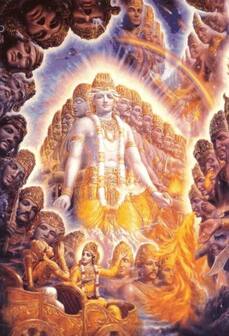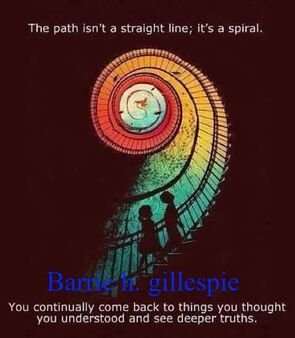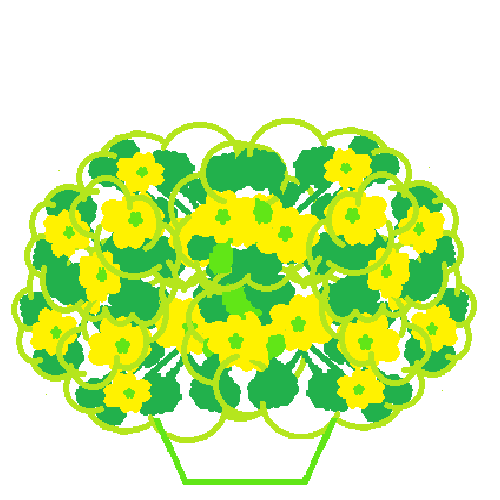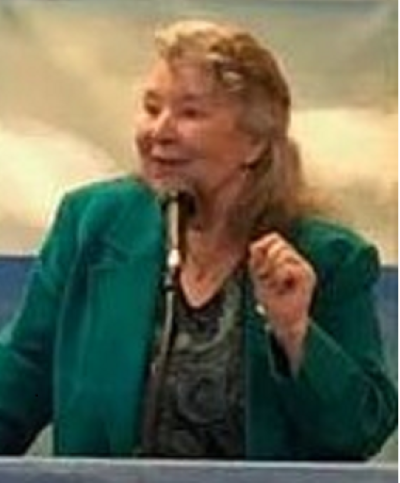
Here's the latest food for thought, hoping it may help make sense of how "religious" or "spiritual" people could "do such things.". :).
In modern-day America, a person is either religious, spiritual, or not. We tend to think that for someone who accepts religion or is “born again,” that’s all that’s necessary. The idea that we can mature in our religious or spiritual practice is almost unheard-of.
Yet, across the millennia and across cultures, humanity has created and experienced lengthy training programs in order to advance to higher understandings and greater spiritual power—with the ultimate goal being what Christians call theosis, Oneness with God.
One version of these steps is described below, from the point of view of the people experiencing them.
STAGE ONE. Awe.
There is a power greater than me and all of us together—a power over all our lives. ("if what controls the world is like me or the powerful people I know, it’s scary!")
STAGE TWO. Appeasement.
There are ways to behave that seem to keep that power working for us rather than against us. (“We must sacrifice to experience atonement.”)
STAGE THREE. Explanation, Imitation, & Ritual.
Some of our behaviors have different effects in different situations; the power that runs things seems to have many faces, each with its own story. (“If we live that story, maybe we can experience the benefits of that special power; saints emulate Jesus, Mary, the Buddha, Mohammed.”)
STAGE FOUR. Relationship.
When we stop to really look at our lives our perception of who we are and what the world is shifts; we let go of fear and control as we enter the Silence—there, the power that has run our world seems to speak to us and guide us on a new path. (the prophet Abraham hears the Lord; Neal Donald Walsh has conversations with God; Esther Hicks experiences Source Energy)
STAGE FIVE. New Choices.
As we surrender old ideas about external power to rely on the new awareness of an inner Guide, we choose based on new standards. (We live what the Egyptians called the “10 words,” and Christians and Jews call Moses’ “10 commandments:” Or, we accept the Buddha’s “8-fold path:”)
STAGE SIX. Well-being.
Living from the new choices and going inside for guidance, we discover that all-that-is, every being, is one interconnected whole; to experience any is to experience all: mercy, justice, humility, generosity, compassion, acceptance are second nature. All is well. (We let go of judgment.)
STAGE SEVEN. Unity.
I am One with all being. I am all—all is that which I am. Call me Being (Essence, I am), for all-that-is exists thru and as me; I Am. (We step off the staircase of progress into joyful beingness.)
STAGE EIGHT. Power.
One Power flows thru and as all that is, expressing as me here, now, and thru me into all other lives and situations. All are healed, whole, holy, now. (We no longer desire, for our soul's longings are always manifest)
STAGE NINE. Infinity.
I am outside of space and time, containing all space and all time, yet creating this moment: now and now and now, again. I choose freedom, knowing it is life/peace for all. (We transcend material experience.)
Reading the lives of prophets, saints, and mystics, we can see that, while all these steps are experienced, this is not an orderly progression. In fact, most people get a glimpse of a stage several steps ahead of where their normal thought processes are operating, then have a series of experiences that move them beyond their current state in the direction of those glimpses.
More, we can see that the great attraction that most Westerners feel toward Jesus the Christ is that he appears, based on our understanding of the literature, to be the only human being to actually have attained and sustained Stage Eight and visibly move on to Stage Nine—in fact, most Christians would say that Jesus could do so only because he was the one Son of God. Hindus, however, would disagree with this idea, saying that while Jesus had, in fact, accomplished all that, they can name at least a dozen other men and women who have also done so, using advanced spiritual practices. And Muslims would say that the blessed Prophet Mohammed had done all that and more, by the grace of God (the Arabic word is Allah), rather than by any effort on his part beyond obeying God.
This is wonderful because, both logically and from the words of those who have glimpsed those final stages, we realize that, in fact, it’s not possible to experience them without the grace of that ultimate Power—a merging is occurring, and it takes more than one being to make such a thing happen. Further, as we contemplate (which, in itself, is part of the process, coming from a word that means “time with God”) this realization, we begin to feel and know that we, too, are being called into that state, too.
Then the real journey begins...


 RSS Feed
RSS Feed
